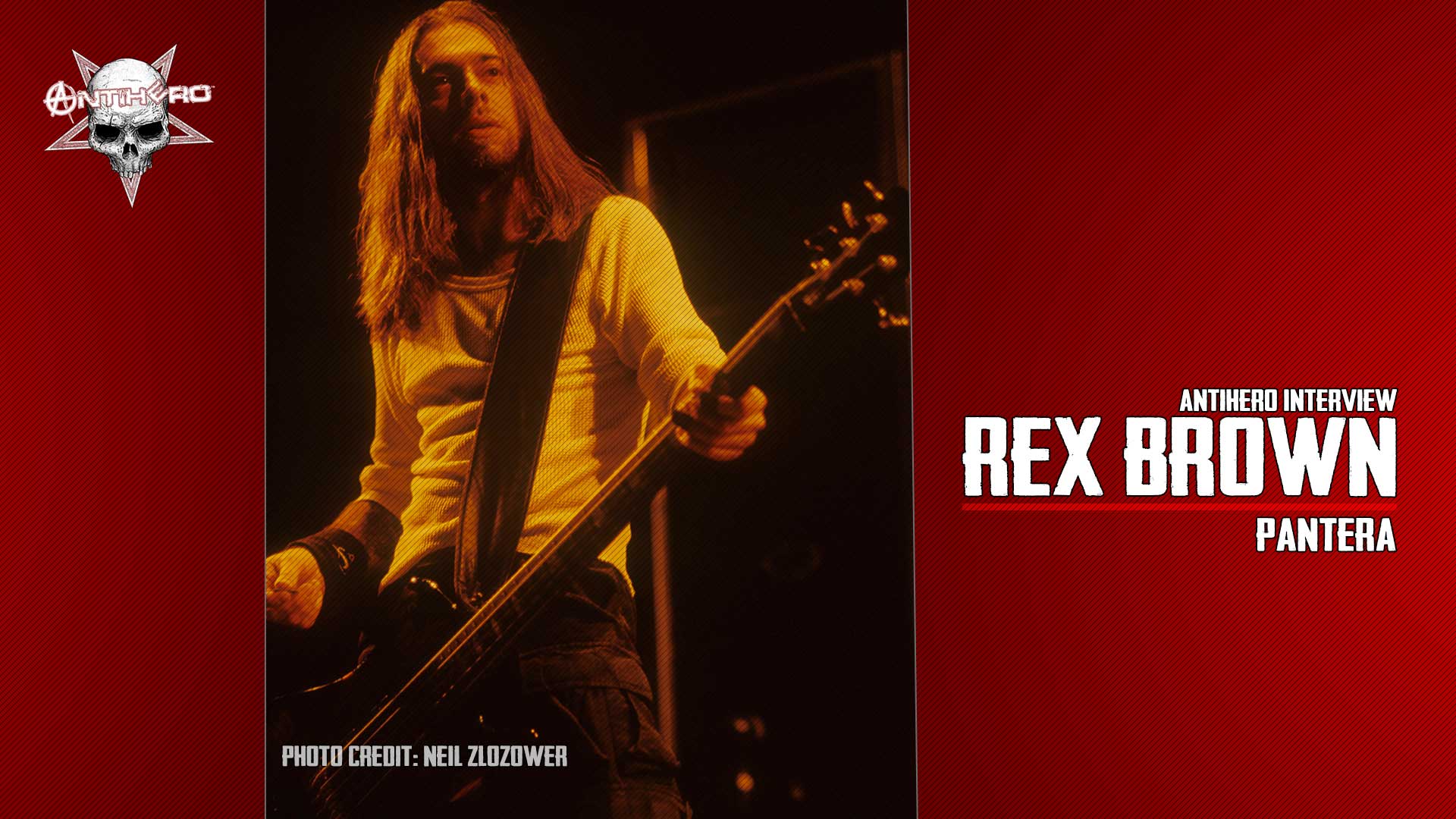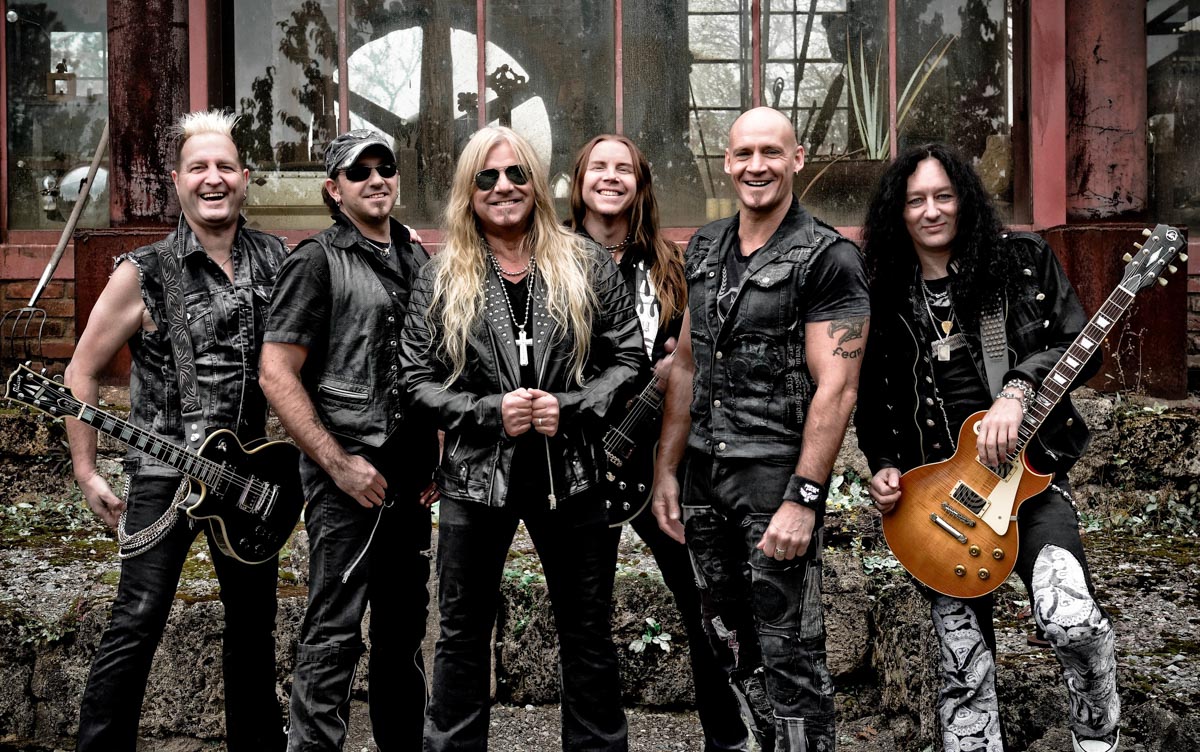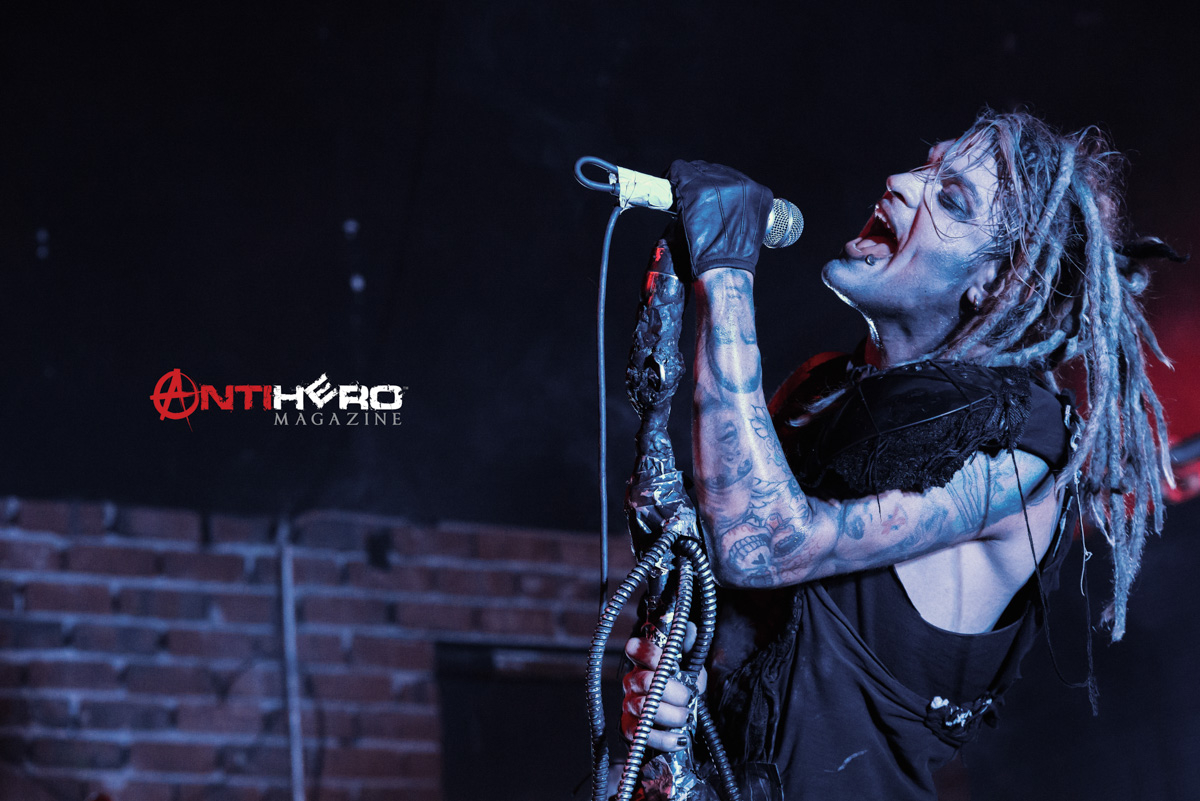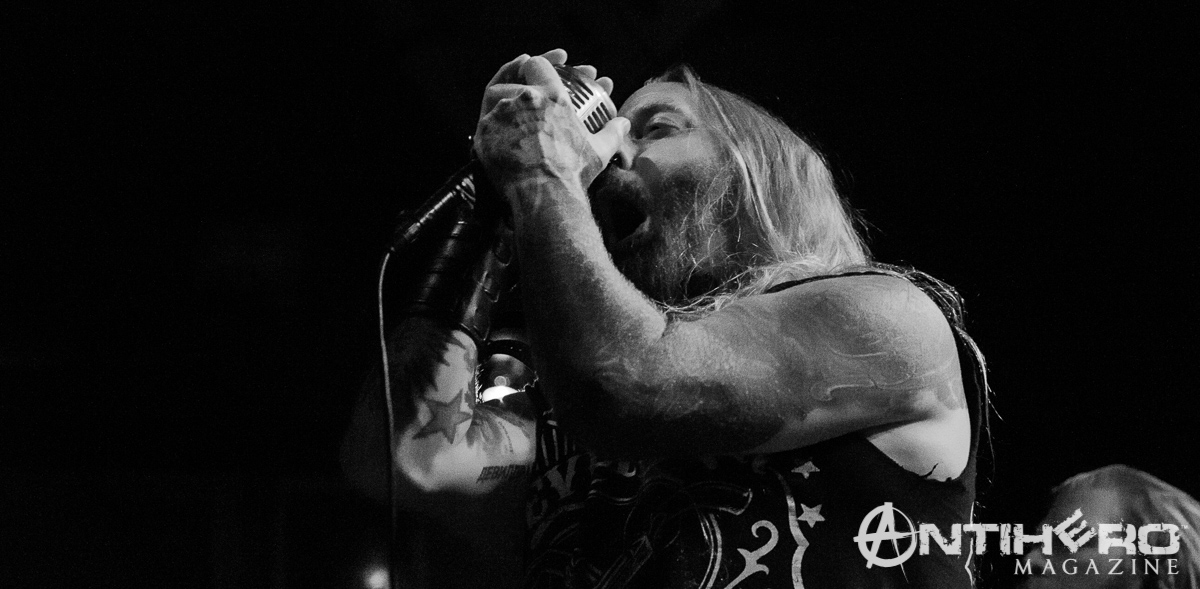 Pantera’s final opus, “Reinventing The Steel”, represented a recommitment to everything the band loved about heavy metal. Released in 2000 at the peak of nu-metal’s popularity, the album’s back-to-basics approach flew in the face of the trend and served as a potent reminder of the enduring power of primal metal. Pantera’s swan song turns 20 this year and Rhino will celebrate with two new versions that feature an unreleased mix of the album by long-time producer Terry Date.
Pantera’s final opus, “Reinventing The Steel”, represented a recommitment to everything the band loved about heavy metal. Released in 2000 at the peak of nu-metal’s popularity, the album’s back-to-basics approach flew in the face of the trend and served as a potent reminder of the enduring power of primal metal. Pantera’s swan song turns 20 this year and Rhino will celebrate with two new versions that feature an unreleased mix of the album by long-time producer Terry Date.
The first is REINVENTING THE STEEL: 20th ANNIVERSARY EDITION, a three-CD set that includes a newly remastered version of the original album and a selection of rarities. A major highlight is a new mix by Terry Date, the legendary producer who was behind the console for the band’s previous four landmark albums: “Cowboys from Hell” (1990), “Vulgar Display of Power” (1992), “Far Beyond Driven” (1994), and “The Great Southern Trendkill” (1996). The set will be released on October 30 for $29.98 and will also be available through digital and streaming services. Three of Date’s new mixes (“Revolution Is My Name,” “Death Rattle,” and “We’ll Grind That Axe For A Long Time”) are available today digitally.
 REINVENTING THE STEEL: 20th ANNIVERSARY EDITION will also be released as a double-LP set on silver vinyl that features the new Terry Date mix on one album, plus eight rare bonus tracks making their vinyl debut on the other. Limited to 5,000 copies, the 180-gram audiophile vinyl collection comes in an embossed, foil jacket and will be available on January 8.
REINVENTING THE STEEL: 20th ANNIVERSARY EDITION will also be released as a double-LP set on silver vinyl that features the new Terry Date mix on one album, plus eight rare bonus tracks making their vinyl debut on the other. Limited to 5,000 copies, the 180-gram audiophile vinyl collection comes in an embossed, foil jacket and will be available on January 8.
Philip Anselmo, Dimebag Darrell, Rex Brown, and Vinnie Paul had already earned a #1 album and several Grammy® nominations by the time Pantera began recording Reinventing the Steel in 1999. The album would prove to be a celebration of the skull-rattling strain of metal the quartet had cultivated through the years with songs like, “We’ll Grind That Axe For A Long Time,” “Goddamn Electric,” and “I’ll Cast A Shadow.” Certified gold and embraced by fans and critics alike, the album would unexpectedly become the band’s last.
 The three-CD and digital versions open with an unreleased mix of the album by Terry Date, who had been helping Pantera perfect its pile-driving sound since 1990. Date – who likes Sterling Winfield’s original mix of the album – says he was initially apprehensive about remixing Reinventing The Steel for this reissue. Eventually, he agreed, knowing that diehard fans would be curious to hear his take on the album. He says, “…I’m just trying to remember what we used to do as I’m going through this stuff. But the riffs and performances are strong. It’s just classic Pantera.”
The three-CD and digital versions open with an unreleased mix of the album by Terry Date, who had been helping Pantera perfect its pile-driving sound since 1990. Date – who likes Sterling Winfield’s original mix of the album – says he was initially apprehensive about remixing Reinventing The Steel for this reissue. Eventually, he agreed, knowing that diehard fans would be curious to hear his take on the album. He says, “…I’m just trying to remember what we used to do as I’m going through this stuff. But the riffs and performances are strong. It’s just classic Pantera.”
The CD and digital collections also include a newly remastered version of the original album, which was co-produced by Darrell, Vinnie, and Winfield. It’s joined by radio edits for singles (“Revolution Is My Name,” “Goddamn Electric”); covers (Black Sabbath’s “Electric Funeral” and “Hole In The Sky,” Ted Nugent’s “Cat Scratch Fever”); soundtrack contributions (“Avoid The Light,” “Immortally Insane”); and previously unreleased instrumental rough mixes for every album track.
I caught up with bassist Rex Brown to discuss recording the album, and what he has been doing to stay busy during a global pandemic.
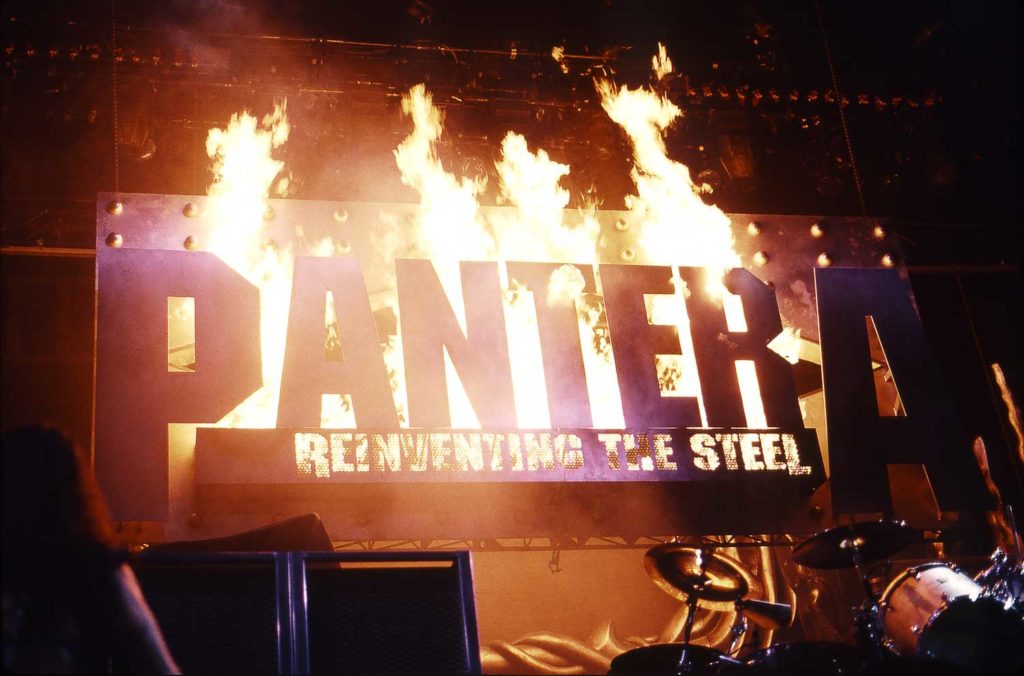
ANTIHERO: It has been a bit of a crazy time for the world. Just wondered how it’s affected you professionally and personally over the last year?
Rex Brown: Actually dude, I’ve got more shit done in the last year than I have in a while. I was supposed to put a record out in the spring, and with this pandemic, of course, it kind of shot everything to shit. So, I’ve been doing a lot of … Actually, yeah man, I’ve been writing my ass off, staying at home, and it’s been really productive. At one time I’ve got some businesses, a big, huge fucking deal that’s … it’ll be in and about here shortly. Went into cahoots with probably the best guitar makers in the world, and we’re coming out with the fucking Rex Brown collection of fucking guitars. What else has been … I’ve just got out of the studio with a good friend of mine. Yeah man, everything’s fucking … It’s cool, but it’s weird. When you’re sitting and cutting a track and you’ve got a fucking mask on your face, you know what I’m saying? Really strange. Really strange. But that’s what we got to do to stay safe in this fucking crazed world that we live in.
ANTIHERO: Regarding the new music then. So, will this be for another Rex Brown solo album, or is it more of a band project?
Rex Brown: The last one I just got out of doing is more for another kind of deal. And I don’t want to really talk about it.
ANTIHERO: No problem. Just a teaser then initially?
Rex Brown: Until it comes to fruition. But the tracks are fucking badass, and it’s one of the best guitar players in the business that you would know. Where do you live? Where are you from?
ANTIHERO: Just outside Manchester in the UK.
Rex Brown: Then you would know this guy very, very well. He moved to Nashville and became a very, very good friend of mine. And we just cut six just blazing fucking tracks. Un-goddam-real.
ANTIHERO: Right. You’re here to discuss the 20th anniversary of “Reinventing the Steel”. I just wondered if you were directly involved.
Rex Brown: Has it been 20 years?
ANTIHERO: Apparently, yeah.
Rex Brown: Goddamn, seems like yesterday.
ANTIHERO: I just wondered if you were directly involved in the putting together of the new package of the album?
Rex Brown: Yeah well, I had a big hand in that.
ANTIHERO: And whose idea was it to approach Terry to do a completely new remix of it?
Rex Brown: That was mine. That was my idea. Yeah. That’s how much I was involved in this thing, from start to finish. In fact, what we had planned to do at the very front when we first started coming up with the plan for the first year, as they usually do when you have an anniversary coming, music starts about six months ahead.
And so, we were trying to get dates so we could confirm with Terry, and Phillip and I were going to go up and stay and mix this thing with him. Put us in a little shitty hotel together. And that didn’t pan out. So, he would send tracks back and forth. Man, I thought it’s what the brothers would do if we weren’t around, or maybe not. I just thought it was a fitting tribute, since he did all the other fucking records, that he was the one to mix this one, remix it. I thought he did a fucking great job.
ANTIHERO: You feel it’s better than the original mix?
Rex Brown: They’re just two different versions, man. That’s all I can say. I don’t want to pin one as being above or better than the other one. But this is worth listening to, I guarantee you.
ANTIHERO: What about those other tracks that are on there? The rarities they’ve included there. Is there a Pantera vault of many tracks that haven’t previously been heard, or is this just basically all that you have?
Rex Brown: I think there might be a few sitting around. I’m not absolutely sure. So, I think there’s still a batch of tunes in there somewhere that need to … that we’ll get to later on down the road. I’ve got plans for some bigger stuff to happen in and about a year and a half.
ANTIHERO: That sounds very interesting. Can you elaborate a bit more on that please?
Rex Brown: A big, huge anthology.
ANTIHERO: That certainly sounds very exciting to me, as a longstanding fan of the band. The album was originally released at a time when there was a dawning of a new musical era, a musical style. Were you aware of what was going on, or was it something that you just ignored when you came to do “Reinventing the Steel”? I’m talking about this nu metal which was just coming out as a new thing around the time of the album’s initial release.
Rex Brown: We didn’t listen to anything else, except for our personal style. You know your history of Pantera, right? We never went about trends or fucking what anybody else was doing. That’s the reason we are the trailblazers that we were. We didn’t put out fucking anything else anybody else was doing. And it wasn’t a conscious fact, it was just a sound that we made. So, no, we were not looking outside of anything. Because if you remember, it was all this new metal shit. Well, hell, that’s where they got all their stuff from in the first place was fucking Pantera.

ANTIHERO: In the album notes it states you found it particularly difficult to revisit the album for a long period. I just wondered, did the revisiting of the album, going back, make you appreciate it more? How was that first time that you went back and listened to it again? I am sure that it was a difficult and even quite emotional experience?
Rex Brown: I think so. I think it’s one of those things where we never went back and listened, but … I’ll just put it this way. Once you’re done with the record, you do 16 months on the fucking road of playing that record, that’s the furthest thing from your mind is going, “Oh, let’s go listen to that fucking record again.” No, I didn’t want to do it … That’s just the way that we were. And most artists will tell you the same thing, because you want to do something that’s bigger, and badder and bolder on the next one. So, after Dime got shot, I had a real problem with that, because the camaraderie that we had in the studio recording this record, was probably the best we had had in five, six years. And because we were touring constantly … And so, it was just hard for me to go back. And because of the post-traumatic stress of Dime’s death, I just didn’t go turn it on.
And I didn’t hear it for a long time. People were kind of tripped out to, play Pantera,” around me anyway. So, I’m sitting on a tour bus somewhere and these kids, they were managed by the same people, and we let them on a bus for like a week or two worth of dates. And they were playing this record in the front lounge and I would stumble up there and grab me a water, grab me something to eat. I’d hear these things, I’d go, “Oh God man, I’m not ready for this.” And this is 10 years after the fact. Finally, the last two or three nights there on the bus, I said, “Okay, listen. I’ll sit down and listen to that fucking record with you.” And we smoked a fucking joint and I just remember all those feelings and all that that had built up in that pressure cooker. It was such a relief to finally go back and listen to what an amazing fucking piece of work that was. It really was.
ANTIHERO: Was it a difficult process recording the album? Did it bring additional pressure given that the band had already achieved massive success before it?
Rex Brown: No. If anything else it was a challenge, because we had to get the record out and we had toured … See, that’s the thing. We had toured all that time in between, we toured “The Great Southern Trendkill”, it came out in ’96, all the way into 97′. Then we went and did the Kiss thing, or vice versa, then we did the Black Sabbath tour. So, we were on the road three years straight, so when we all got back together, we recorded at Dime’s place again. We had all the gear, as far as recording gear. And Phillip came down and it was just probably … It reminded me of the old days. Everybody was there, they had the same drive, had the same purpose. I remember Phillip saying, “I just want this one to be more academic.”
And that’s kind of where we kind of went with the goals. We all wrote down a list, the five favourite Pantera tracks. Let’s go take a look at these other four records that we have, or five, or whatever, and figure out what makes that sound and what can we update it? You know what I’m saying? Like Pantera version two, going into the 2000s, what are we going to do with this? So it was a concerted effort on everyone’s part to just … And man, once we got into a groove, it just started flying. And there was the magic again. Red hot off the fucking road we just went in and made the best damn record we could. And that’s all that we ever did anyway. I hope that answers your question.

ANTIHERO: How do you view the musical legacy of Pantera the band and your own personal contribution to it? Is it something that makes you immensely proud looking back at those albums and what you achieved?
Rex Brown: Oh, of course. Yeah. I don’t wake up and go, “I’m Rex Brown of Pantera.” I don’t do that kind of shit. No. I mean, we left a mark. We did exactly what was supposed to be done and it was taken short from us.
ANTIHERO: Do you feel that Pantera’s success subsequently overshadowed everything that you personally brought out musically afterwards? I’m just saying that because you had massive success, when you moved on, was it not difficult for you to be judged on what you had created post-Pantera, so to speak?
Rex Brown: Massive success brings massive fucking pressure. You know what I’m saying? So, no, that shit was left at the doors. No egos. All that stuff … You’re only as good as your last fucking note, pal and they better be fucking blistering. That’s the way this band worked. And once you had that magic … We never thought of success or anything like that in terms of commerciality. We thought of it in terms of songwriting. We were certainly all gifted songwriters in our own right. But as far as something like that, no. We never got too big for our boots, I’ll put it that way.
ANTIHERO: Yeah. I just wondered; you went on to do other music…
Rex Brown: You’re talking 20 years later, Jack. You know what I’m saying? A lot of shit has happened in between those 20 years.
ANTIHERO: Just moving on to your music after Pantera. Your solo album was released back in 2017. I just wondered if that was difficult, given that you took on vocals, guitar, as well as your normal bass? ( “Smoke On This”)
Rex Brown: Again, another challenge. That record was a lot of fun. In fact, like I said, I’ve got another one in the can that I’ve been sitting on forever, because of this pandemic. You would have seen this last spring, almost a year ago. So yeah, it’s almost been two years that it’s been ready to … Or even before that, I just didn’t find the right label I was looking for. So that’ll be out in June. And then I’ve got plans to make one at the end of the year, and also working on another project. So, there you go.
ANTIHERO: You wrote a book, “Official Truth, 101 Proof” in 2013. I haven’t actually read that, although I have ordered it from Amazon. I just wondered, how was the process of writing the book compared to writing an album?
Rex Brown: Oh man, I wish I would’ve just waited on that book, put it out like 10 years from now. These guys came to me and then they only wanted to put in what they wanted to put in. It’s my truth, it’s my words, but there was a lot of stuff that I didn’t want in there that was put in. I offered to give them the money back for the fucking advance, I was just like … But hell, it’s on it’s fucking 11th pressing. You know, I think it’s done all right. It was just timing that was not good for that thing. But, it did something. It’s just my story. The other guys had their chance to write a book, they could have.
ANTIHERO: Do you have any outside interests or hobbies outside of music? What do you do in your spare time?
Rex Brown: I golf and I ski, and I live in Mexico. And fucking plenty of snow, I’m looking to snow my backyard. Back at the ranch, I mean. I do tons of shit. Songwriting…
ANTIHERO: Just a final one then. You’ve done many interviews over the years and different band projects, not just Pantera. But who would you most like to sit down and interview?
Rex Brown: An interview? Me interview someone, or someone interview me?
ANTIHERO: You interview somebody, if the roles were reversed and you could ask the questions.
Rex Brown: Oh, God. If all my fucking heroes weren’t dead … Tom Petty would be one. Man, there’s just been so many people in the last … this pre-pandemic, that passed away too soon. I think a really good interview would be with me and Geezer Butler. That would be my choice. Let’s see, who else? Man, there’s tons of guys that I’m friends with that I … That’s a pretty good question you have there, buddy. You stumped me.
ANTIHERO: Thanks. That’s great. That’s about everything. Thank you very much for chatting. Good luck with all your different musical projects. You sound like you’ve been very busy.
Rex Brown: I have been, but I’ve been very, very safe. I’m going to keep that way until I can get the fucking vaccine.
ANTIHERO: Thank you very much for talking to me.
Rex Brown: All right. Have a good day. See you. Cheers.

